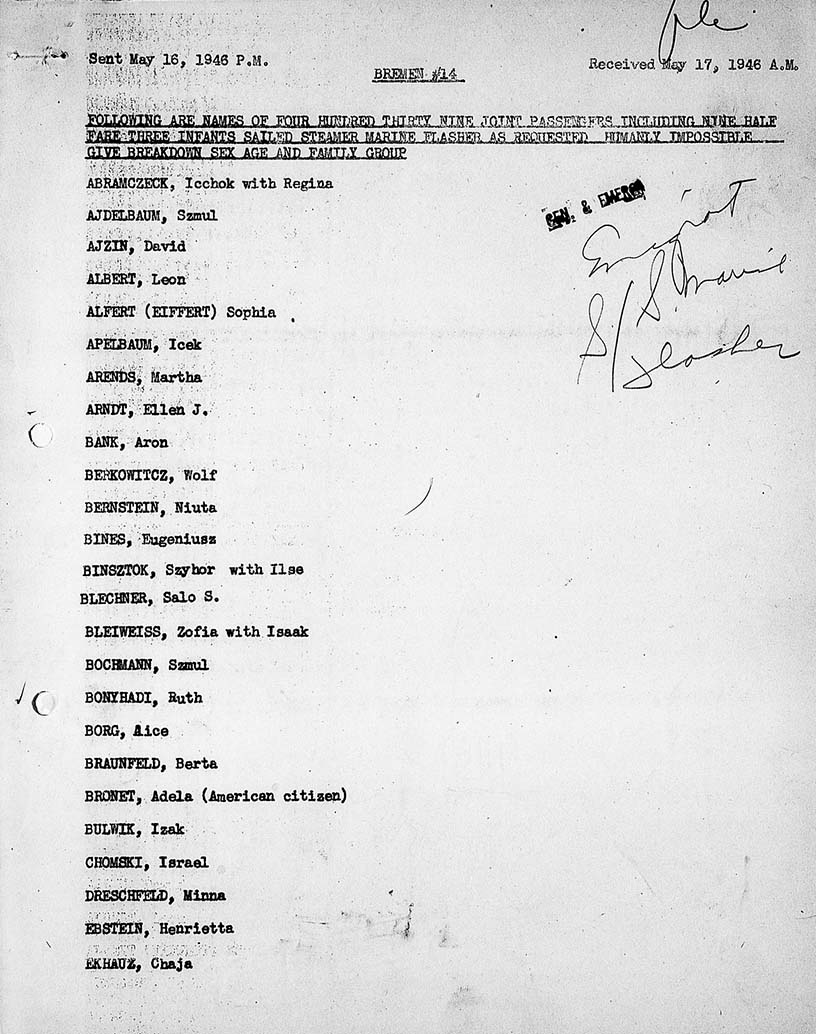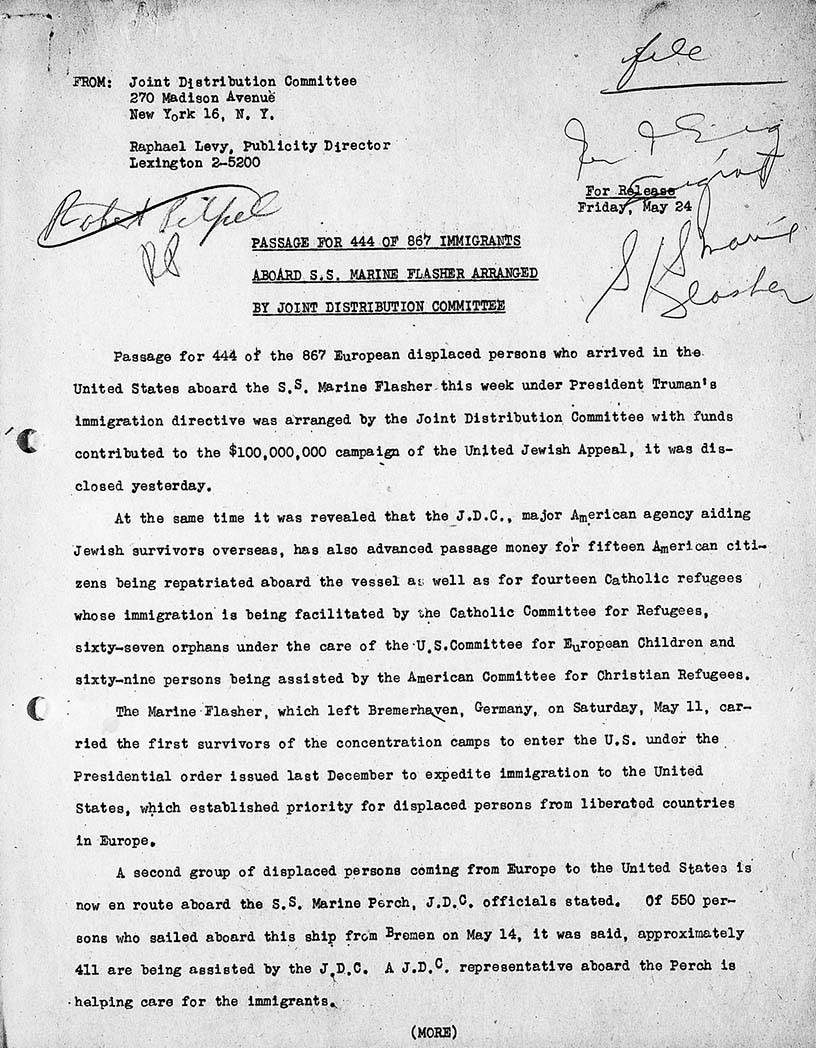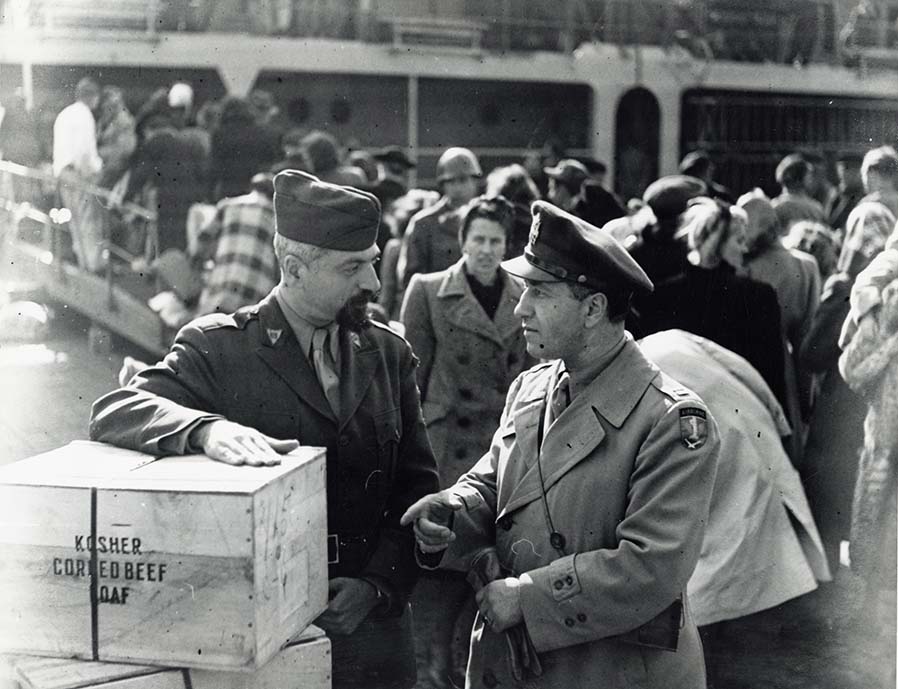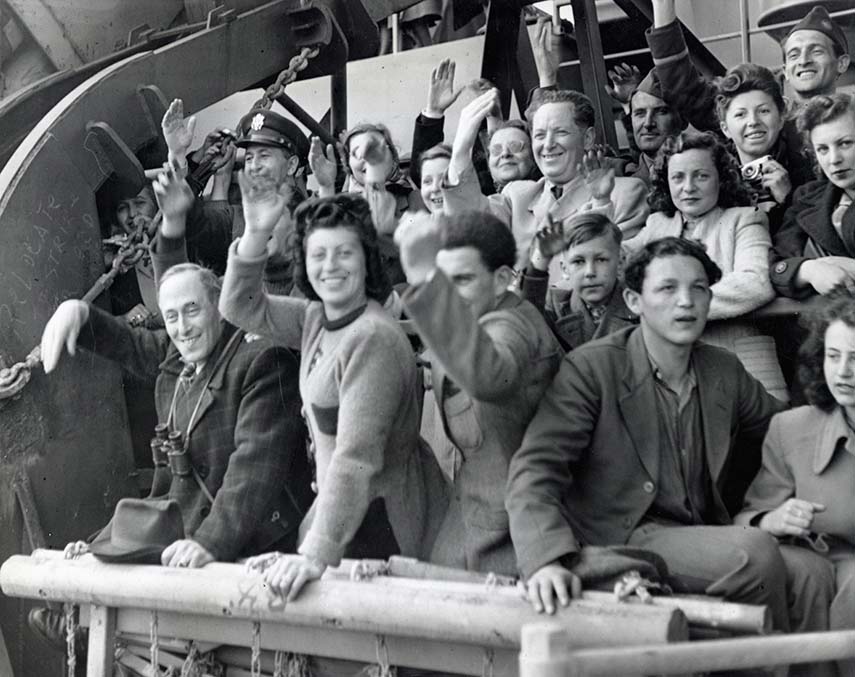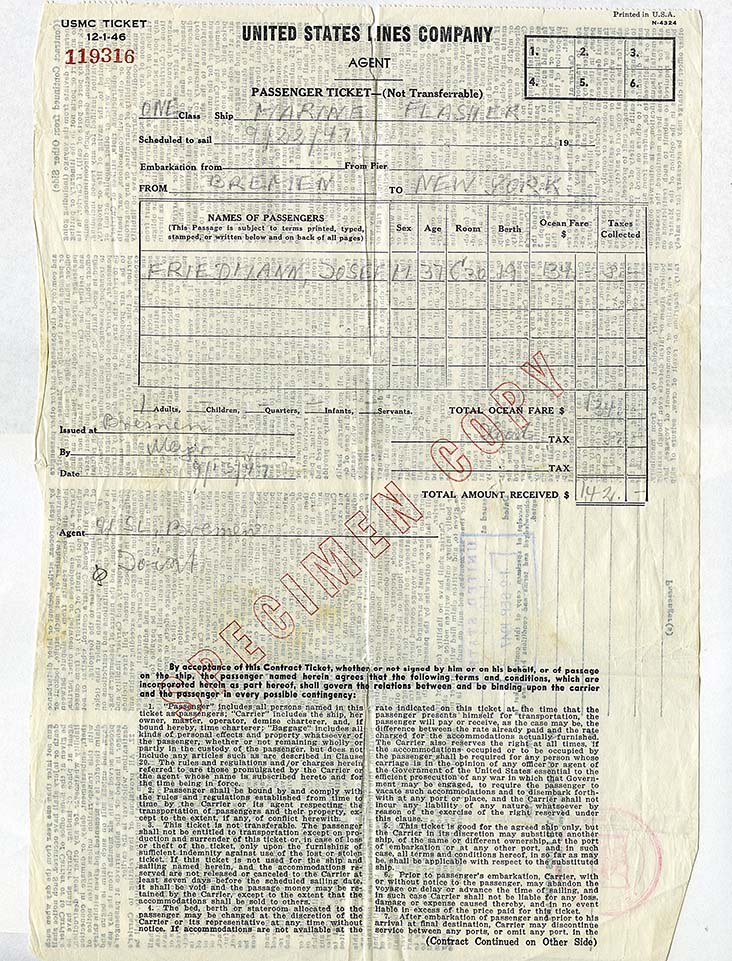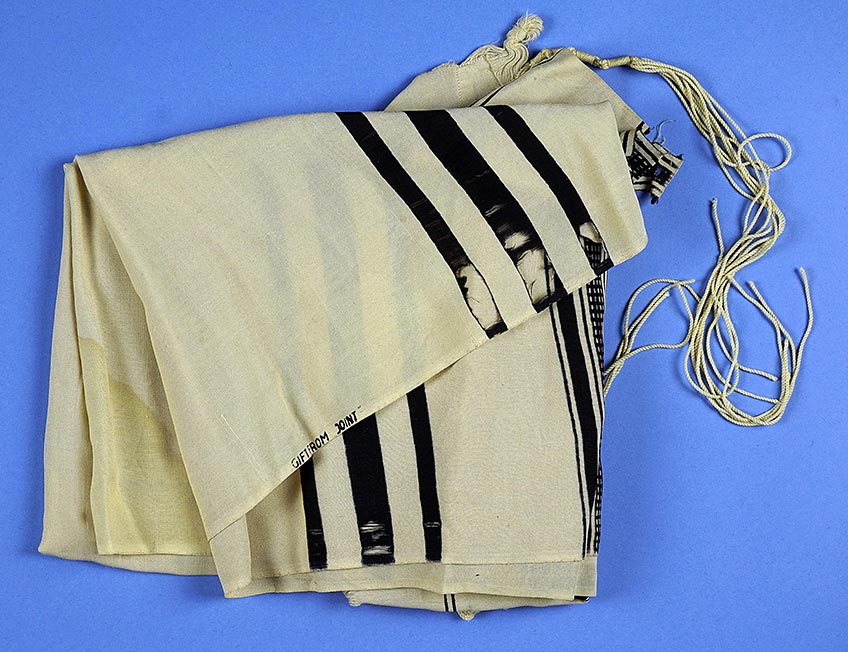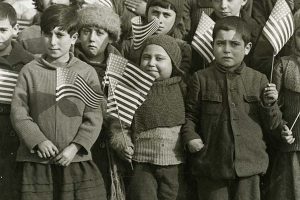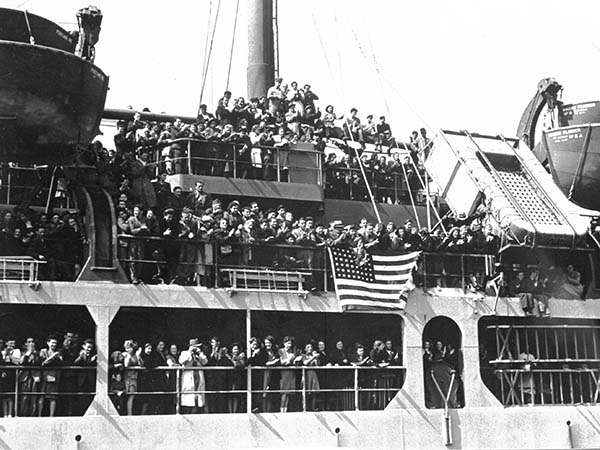
The Sailings of the S.S. Marine Flasher
Multidimensional resources for genealogists
When embarking on a family genealogy quest, it is natural to begin searching with family names or birth places. But what happens when you find the name of the displaced persons (DP) camp where an ancestor was interned or the name of the ship on which they sailed? That’s where the JDC Archives comes in. Our database can shed light on the historical and personal context of these experiences through multidimensional resources of particular interest to family researchers.
Passengers boarding the S.S. Marine Flasher to sail to the United States under President Truman’s directive facilitating such immigration. Bremerhaven, Germany, May 10, 1946. Photographs: Al Taylor.
Take for example the sailings of the S.S. Marine Flasher. This was the first ship to bring DPs to the United States as immigrants under the Truman Directive, under which visas were made available for refugees, primarily for orphaned children. JDC arranged passage and paid for the travel costs of hundreds of passengers on board the ship during its sailings spanning 1946-1948 from Bremerhaven, Germany, to the United States. Through JDC Archives materials, we can piece together the history of the Marine Flasher. Reports, passenger lists, eyewitness personal accounts, photographs, and ephemera can bring the story of the ship alive for descendants of DPs who made the journey.
(Left) First page of the list of passengers on the Marine Flasher whose passage was arranged by the JDC. (Right) Text of a JDC press release about the event. May 1946. JDC Archives.
The JDC Archives text collection has a plethora of documents pertaining to the Marine Flasher, and even an entire folder devoted to the ship’s sailings. This folder contains more than 100 pages of documents, including passenger lists, cables, correspondence, and reports. The names of the passengers have recently been added to the Names Index. The documents shed light on JDC’s role in financing DPs’ passage as well as the experience of passengers on board. For example, one report from July 22, 1946, states that “passengers conducted religious services in the library each morning and evening” on board the ship. JDC had a supply of prayer books for them to use as well as English reading materials and Yiddish books. Concerts were even held as there were several talented people onboard. Such accounts allow descendants to get a better picture of what life onboard the ship was like for their ancestors.
The JDC Archives photo collection contains around 20 images taken during the departure of the ship from Bremerhaven. Images illustrate the ship’s boarding at Bremerhaven, with passengers filing onto the gangplank, luggage being heaved on deck, and smiling faces waving goodbye. Search for yourself! We welcome anyone to identify individuals they may know in the photographs by contacting us at [email protected].
In fact, when we posted the above photo on our Facebook page, we were able to successfully identify Chaim Nieschawer (fourth from the left) thanks to his son Steven.
The database even has artifacts and ephemera that made the journey. Within our collections are a cache of personal documents and artifacts that were on board the Marine Flasher, in the personal effects of passenger Josef Friedman. Friedman was born in Cluj, Romania, and liberated from Buchenwald. While he was interned at the Muenchenberg DP camp in Kassel, Germany, he received a tallit from JDC. Along the rim of the tallit reads the epitaph, “Gift from Joint,” referring to JDC’s nickname. The threadbare tallit was gifted the JDC Archives by Josef’s son Steven, along with numerous family documents and some ephemera from the Marine Flasher’s sailing, including his ticket. Josef Friedman treasured items that were important to him, evident by the preservation of his JDC tallit, so it is safe to surmise that his sailing was a trip to remember.
Take it from JDC Entwine staff member Naomi Levin, who was touched to find evidence of her grandfather in the JDC Archives. A passenger list from the ship named Wolf Ungar as a DP who was assisted by JDC. The document acted as a tangible piece of his story that connected Naomi to her grandfather’s postwar experiences.
The multimedia present in the JDC Archives collections allows for a multifaceted glimpse at important historical events. Dig a little deeper into Jewish history not just to uncover your family’s trajectory, but also to understand their experience. Search our collections today.


